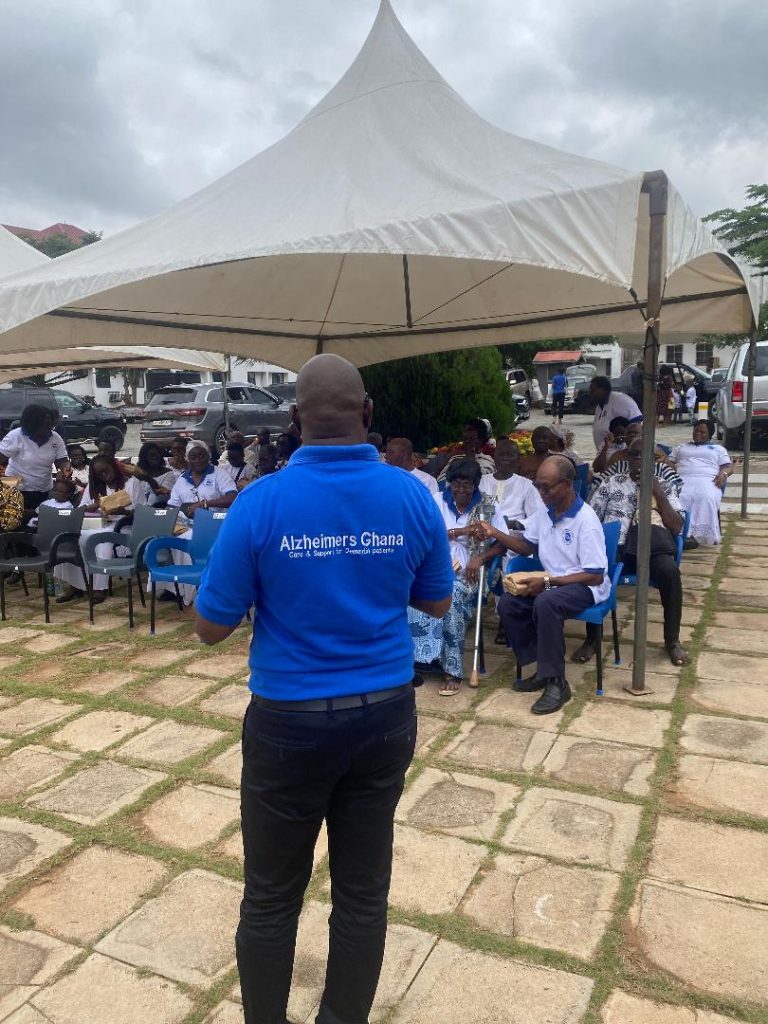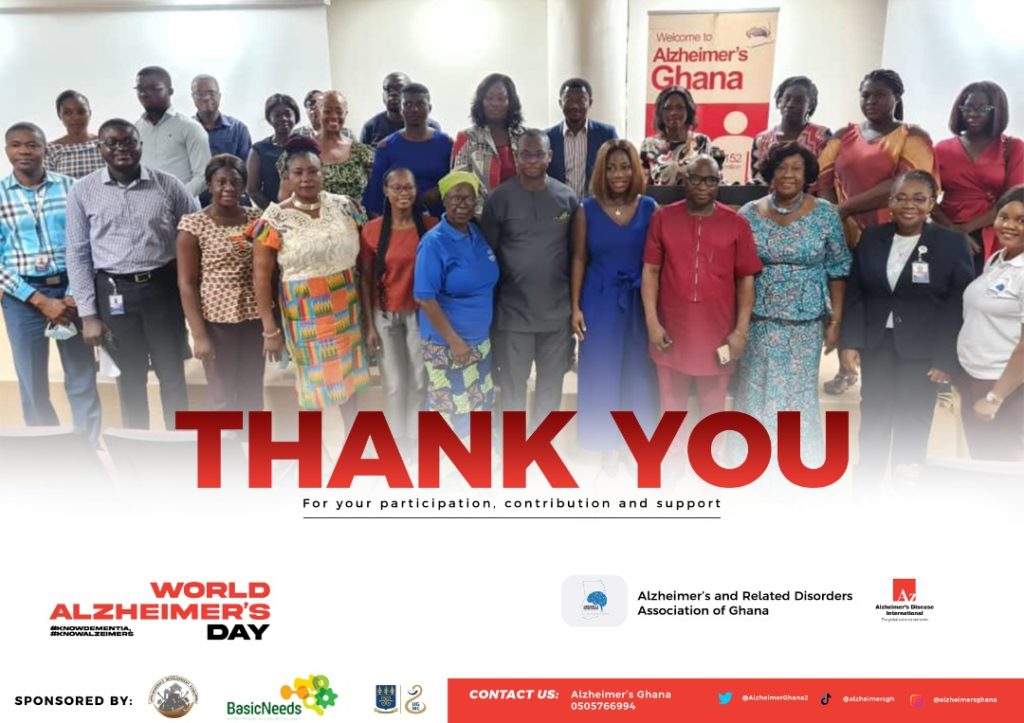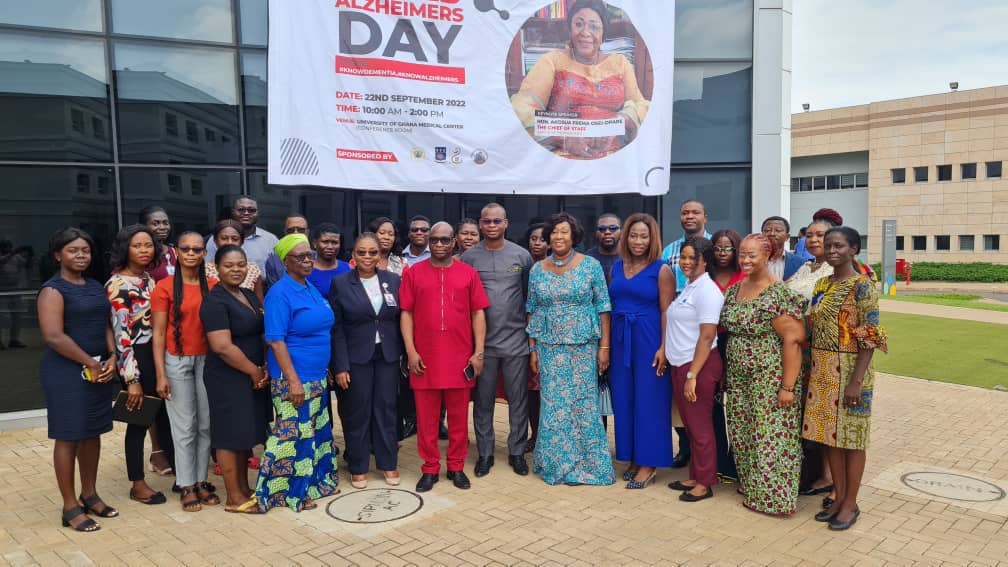Alzheimer’s Ghana together with Center for Aging, University of Ghana and the Global Brain Health Institute from USA, embark on Advocacy and Policy programmed on Dementia in Ghana.
Author Archives: admin
Education and Sensitization Programme for Aggrey Memorial College, Cape Coast
Alzheimer`s Ghana and Alter team from University of Emory and University of Georgia, USA delivered a nationwide awareness education and sensitization in schools and colleges. The Executive Director of Alzheimer`s Ghana, Mr Venance Dey used the opportunity to call on students and teachers to identify people living with dementia and help refer them to the appropriate hospitals and health facilities for care and treatment. Dr Fayron Epps from Emory University also advised students and teaches to adopt habits and practices that will help improve their brain health.
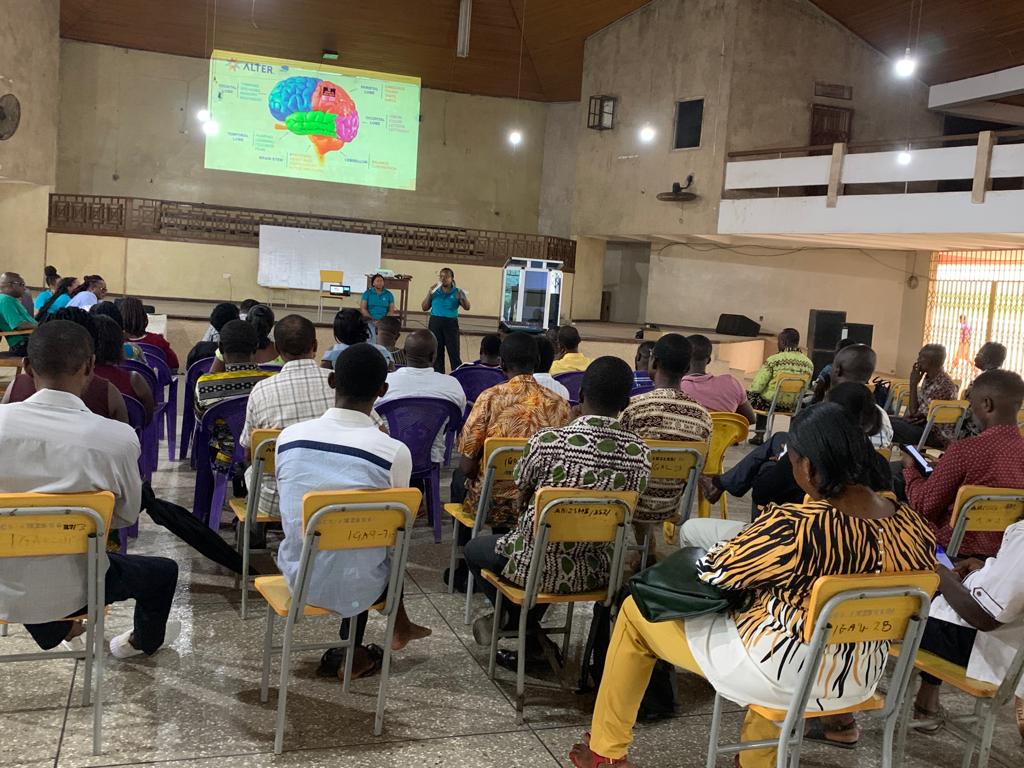
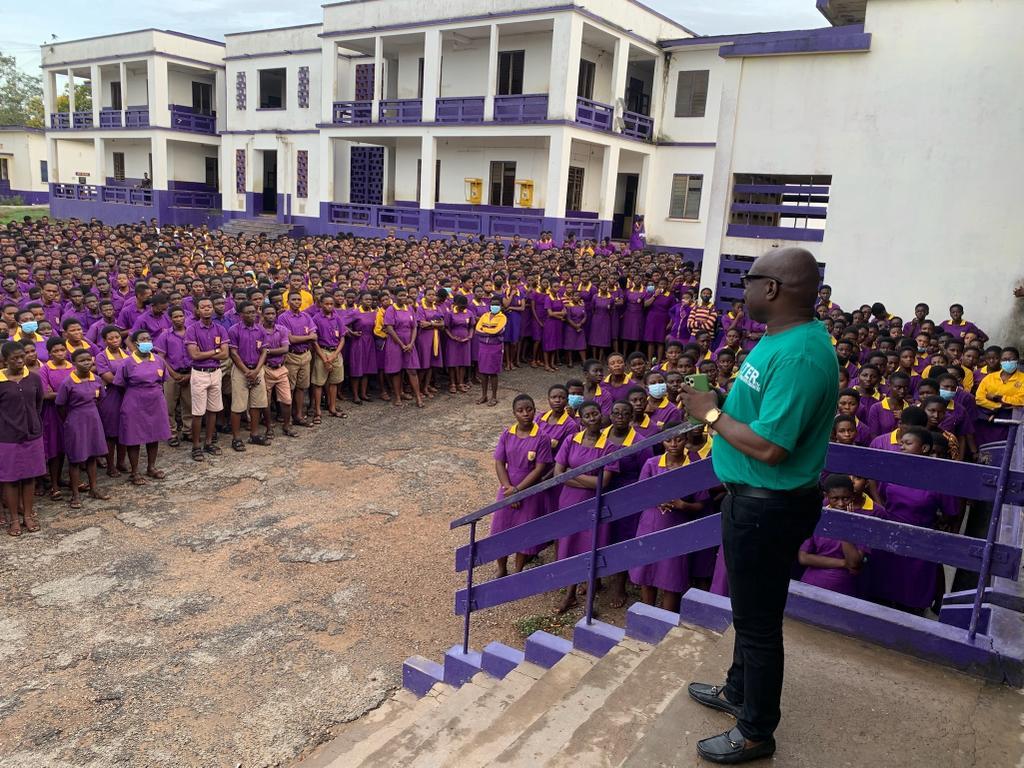
Alzheimer`s Ghana and Alter Mission extended education and awareness to Nursing Training College, Ho in the Volta Region.
A collaboration drive between Alzheimer`s Ghana and Alter Mission comprising a team from The Emory University and Georgia University all in USA visited the Nursing Training College and educated the students on dementia and alzheimer`s disease. During the programme, emphasis was laid on identifying the signs and symptoms of disease early and helping to treat and manage the cases effectively. The team also encouraged students to stand against any form of discrimination and abuse of persons suffering from the sickness.
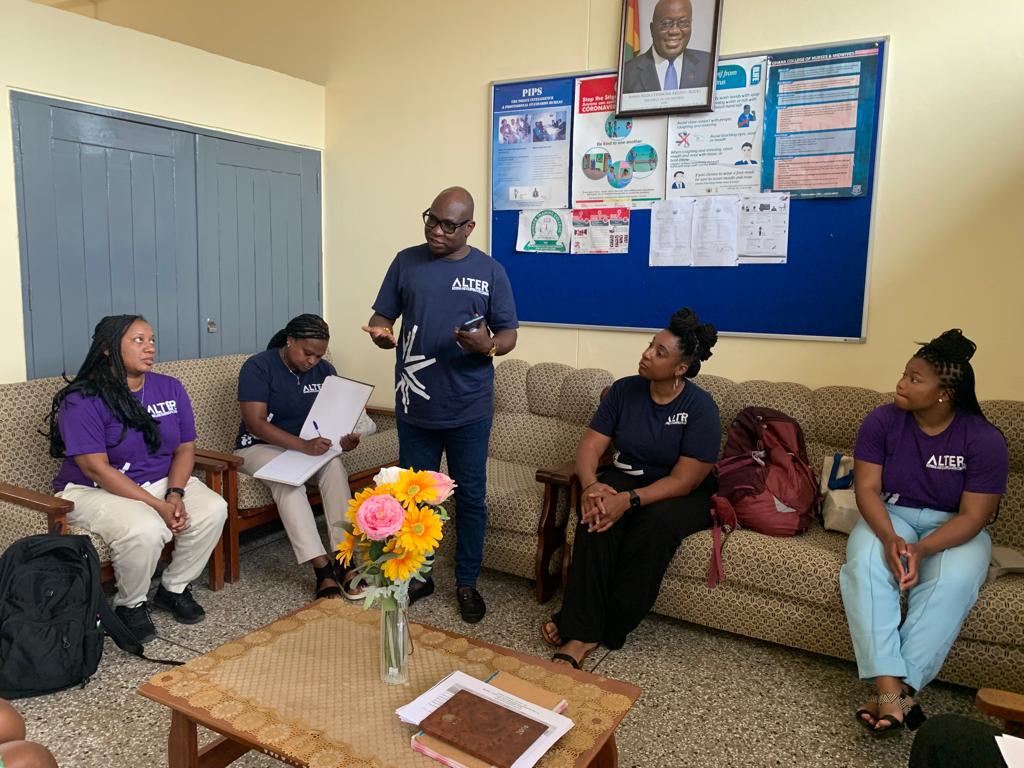
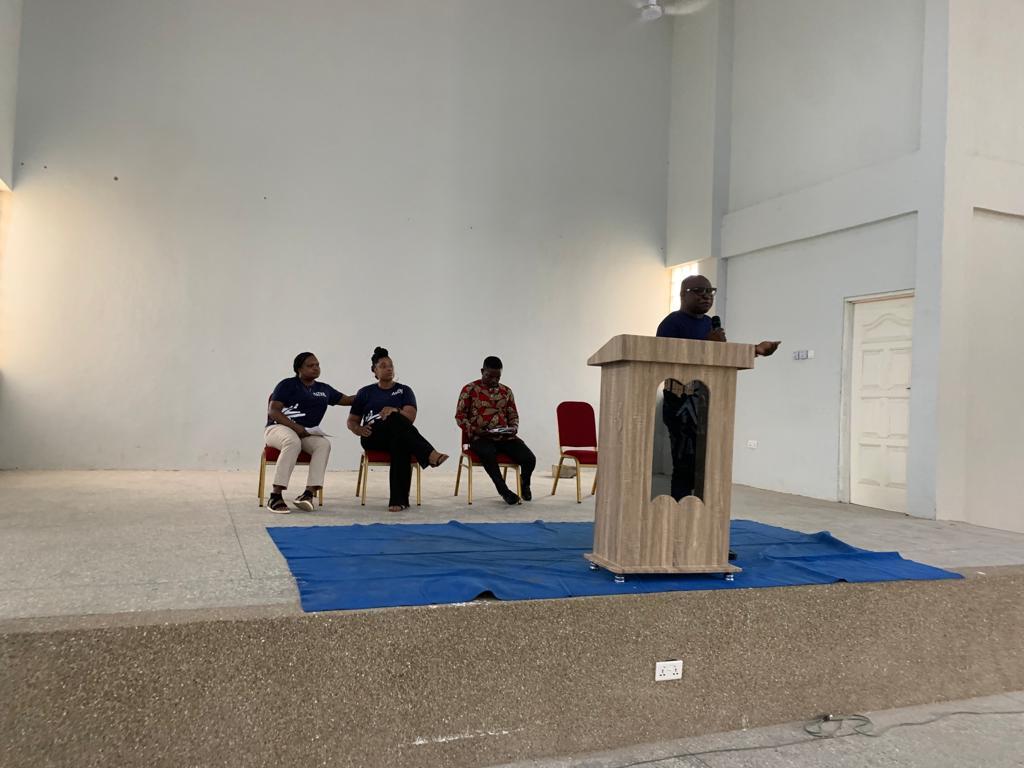
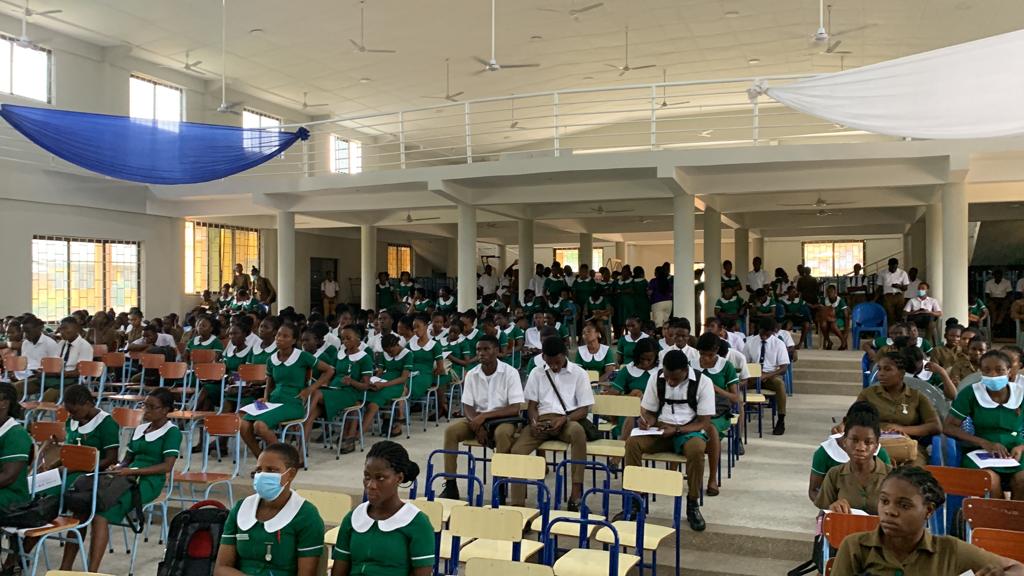
Alzheimer`s Ghana Conducted Education and Awareness at Thomas Aquinas Church, University of Ghana, Legon.
Alzheimer`s Ghana Creates Awareness
Alzheimer`s Ghana met the Former President, His Excellency, John Agyekum Kufuor
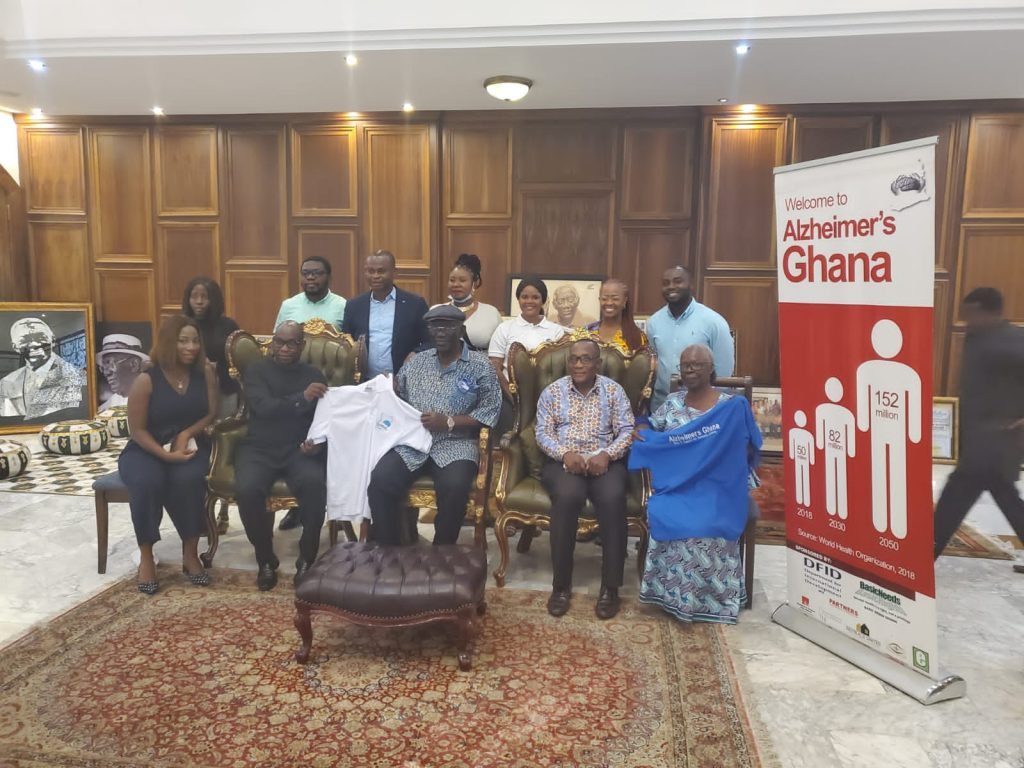
s Ghana team in the country He also encouraged the organization to keep up the good work on advocacy and education on dementia in the country . This happened when the organization led by its Co-founder Mr Venance Dey paid a courtesy call on him as part of their awareness activities to mark World Alzheimers Day 2022 Celebration in Ghana. At the meeting the President of the Board Dr Dennis Bortey also spoke on the disease its causes symptoms and it`s management needed to improve lives of victims. World Alzheimer`s Day 2022
32nd International Conference of ADI in Kyoto 2017
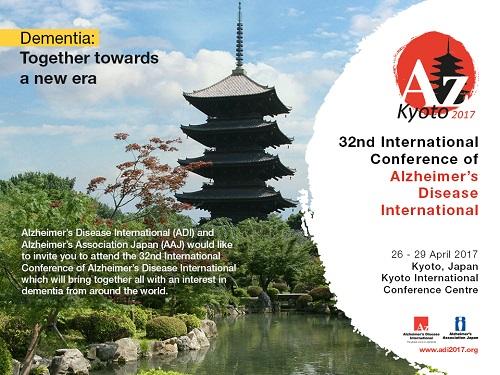
32nd International Conference of ADI in kyoto Japan
Dementia: Together towards a new era
The annual conference of Alzheimer’s Disease International (ADI) continues to evolve and now attracts thousands of people with an interest in dementia from over 100 countries around the world. Hosted with a different Alzheimer association around the world each year, in 2017, the conference will be hosted with Alzheimer’s Association Japan (AAJ).
The conference is one of the world’s largest and most important conferences on Alzheimer’s disease and dementia, featuring a range of international keynote speakers and a high standard of scientific and non-scientific content; combined, this makes it the optimum setting to learn about the latest advances in the treatment of dementia.
PERSON – CENTRED CARE
Person – centred care seeks to view the person with dementia as a whole, and considers how the person is influenced by factors beyond the physical changes in the brain. The person centred approach to dementia care focuses on the needs of the service user rather than on the priorities of the service provider. Instead of trying to change people’s behaviour for the benefit of the care setting, a person-centred approach seeks to resolve any difficulties in the interest of the person.
The person – centred approach to care focuses on the individual’s abilities rather than the loss of their abilities. The needs and the emotions of each person are the focal point around which everything else is geared. The person – centred approach seeks to value every person as a unique individual, taking into account their past experiences, their abilities, knowledge, preferences, desires, fears and personality. In other words, the person – centred approach seeks to value the unique personhood of every individual.
The person – centred carer will recognise that some individuals may not be fully able to look after their own well-being, but will seek to provide a positive response that enables the individual to be involved in their care wherever possible by compensating for their losses and building on their strengths and abilities. Finding out about and valuing each person’s talents not skills, and understanding their hopes and fears and what works or does not work for them, will help the carer to provide support and care that is personal to every individual.
This approach also acknowledges what some people may term challenging behaviours as a means of communication. Some people may not be able to express what their needs are or how satisfied they are with the way their needs are being met. Care staff must strive in their attempts to understand the meaning behind the behaviour so as to engage with the individual’s expression of satisfaction or dissatisfaction in how their needs are being met.
Human Rights Day
Human Rights Day
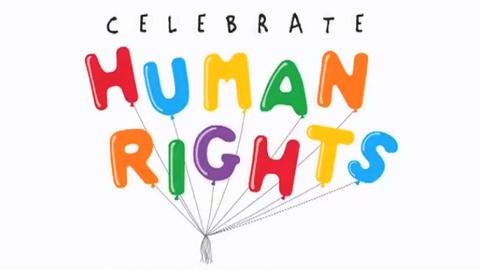
Human Rights Day
Saturday, 10 December, 2016
Alzheimer’s and Related Disorders Association Ghana invites you to help us 10th December to celebrate Human Rights Day. Human Rights Day is observed every year on 10 December. It commemorates the day on which, in 1948, the United Nations General Assembly adopted the Universal Declaration of Human Rights.
In 1950, the Assembly passed resolution 423 (V), inviting all States and interested organizations to observe 10 December of each year as Human Rights Day.
This year’s Human Rights Day is devoted to the launch of a year-long campaign for the 50th anniversary of the two International Covenants on Human Rights. The two Covenants, together with the Universal Declaration of Human Rights, form the International Bill of Human Rights, setting out the civil, political, cultural, economic, and social rights that are the birth right of all human beings.
“Our Rights. Our Freedoms. Always.” aims to promote and raise awareness of the two Covenants on their 50th anniversary. The year-long campaign revolves around the theme of rights and freedoms — freedom of speech, freedom of worship, freedom from want, and freedom from fear — which underpin the International Bill of Human Rights are as relevant today as they were when the Covenants were adopted 50 years ago.

